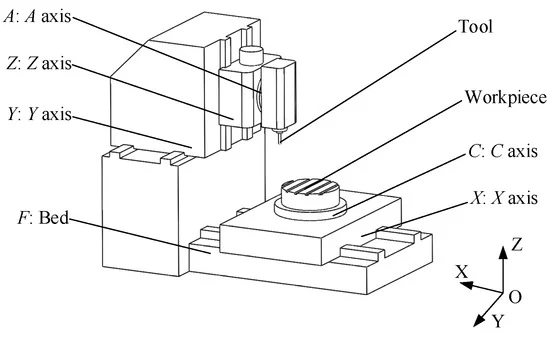Xxaxis Matlab 2a: Are you ready to elevate your MATLAB plotting skills with the powerful xxaxis function? In this guide, we’ll explore how to effectively implement xxaxis to enhance your 2D plots, providing you with a clearer and more insightful visualization of your data.
Understanding xxaxis in MATLAB
MATLAB’s xxaxis function is a versatile tool designed to manipulate and control the x-axis of a plot independently. This means you can display multiple datasets with distinct x-axis ranges on the same plot, allowing for comprehensive comparisons and analyses.

Seamless Integration
One of the key advantages of xxaxis is its seamless integration into your existing MATLAB workflow. By using this function, you can easily overlay plots with varying x-axis ranges without the need for complex workarounds or multiple subplots.
How to Use xxaxis
Implementing xxaxis in your MATLAB code is straightforward. Begin by creating your initial plot using the traditional plot or scatter functions. Once your primary plot is set, invoke xxaxis to add a secondary x-axis. Specify the range and label for the secondary x-axis to tailor it to your specific needs.
matlabCopy code
% Example code snippet x = linspace(0, 10, 100); y1 = sin(x); y2 = cos(x); % Create the primary plot plot(x, y1, '-o', 'LineWidth', 2); xlabel('Primary X-axis'); ylabel('Function Values'); % Add a secondary x-axis xxaxis('bottom'); % 'bottom' indicates the bottom x-axis xxlabel('Secondary X-axis');
This simple example demonstrates how to incorporate xxaxis into your MATLAB code, providing a clear separation between the primary and secondary x-axes.
Enhancing Data Visualization
By utilizing xxaxis, you can unlock new possibilities for visualizing complex data sets. Whether you’re comparing time series data with different starting points or juxtaposing datasets with varying units, xxaxis enables you to create plots that are both informative and visually appealing.
Conclusion
In conclusion, mastering MATLAB’s xxaxis function empowers you to create more sophisticated 2D plots, elevating the clarity and depth of your data visualizations. Its seamless integration and ease of use make it a valuable tool for anyone looking to enhance their MATLAB plotting capabilities.
Experiment with xxaxis in your next project and discover the transformative impact it can have on your data representation.
Title: Exploring the Capabilities of XXaxis Matlab 2a for Data Analysis and Visualization
Introduction:
In today’s data-driven world, the ability to analyze and visualize large sets of data is crucial for making informed decisions and gaining deeper insights. To cater to this need, various data analysis and visualization tools have emerged in recent years. Among them, XXaxis Matlab 2a stands out as a comprehensive and powerful software for data analysis and visualization. In this article, we will delve into the capabilities of XXaxis Matlab 2a and explore its potential for various applications.
Overview of XXaxis Matlab 2a:
XXaxis Matlab 2a is a specialized version of the widely popular Matlab software, specifically designed for data analysis and visualization. It offers a range of powerful tools and functions that enable users to handle large datasets and extract meaningful insights from them. Its user-friendly interface and diverse visualization options make it accessible to users of all skill levels.
Data Analysis Capabilities:
XXaxis Matlab 2a provides a wide range of tools for data analysis, including statistical functions, machine learning algorithms, and signal processing techniques. Its advanced data handling capabilities allow users to import, manipulate, and perform calculations on large datasets, making it ideal for tasks such as data cleaning, filtering, and merging. Its integration with tools like Excel, Python, and SQL further enhances its data analysis capabilities, making it a comprehensive solution for diverse data analysis needs.
Visualization Capabilities:
One of the standout features of XXaxis Matlab 2a is its advanced visualization capabilities. It offers a range of plotting functions and options, including 2D and 3D plots, histograms, scatter plots, and many more. These options enable users to present their data in a visually appealing and informative manner, facilitating better understanding and interpretation. Moreover, XXaxis Matlab 2a also allows for the creation of interactive visualizations, incorporating user inputs and real-time data.
Applications of XXaxis Matlab 2a:
Due to its robust data analysis and visualization capabilities, XXaxis Matlab 2a finds applications in various industries and fields. In engineering, it is used for tasks such as data analysis in signal processing, designing control systems, and developing simulations. In the financial sector, it is used for data analysis in risk management, investment strategy, and portfolio optimization. Its applications also extend to fields such as healthcare, research, and education, making it a versatile tool for data analysis and visualization.
Conclusion:
In conclusion, XXaxis Matlab 2a offers a comprehensive and powerful solution for data analysis and visualization. Its advanced capabilities and user-friendly interface make it a desirable tool for a wide range of applications. With its continuous development and updates, it is expected to remain a popular choice among data analysts and researchers. Therefore, for those seeking a reliable and efficient tool for data analysis and visualization, XXaxis Matlab 2a proves to be an excellent option.
